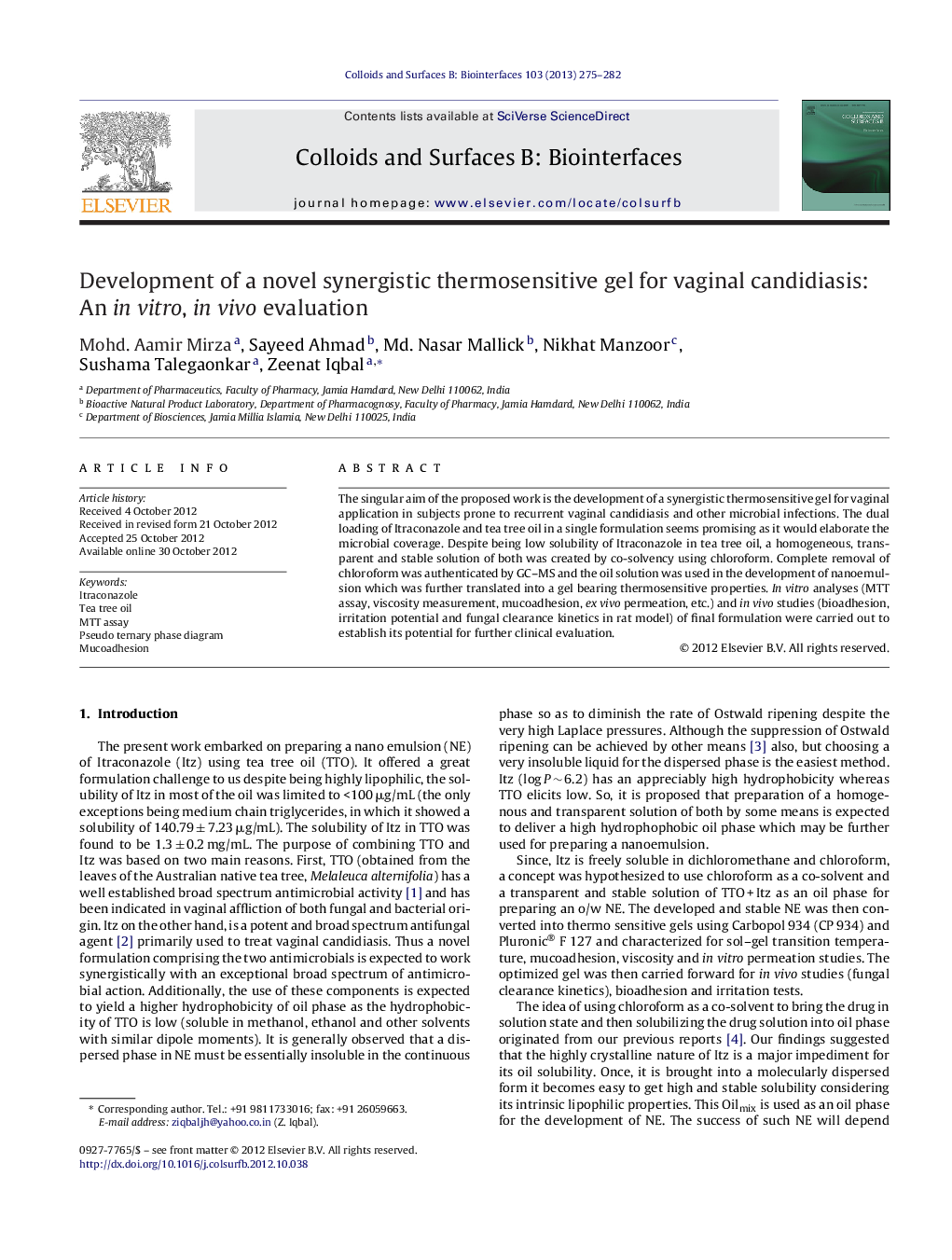| کد مقاله | کد نشریه | سال انتشار | مقاله انگلیسی | نسخه تمام متن |
|---|---|---|---|---|
| 600358 | 1454301 | 2013 | 8 صفحه PDF | دانلود رایگان |

The singular aim of the proposed work is the development of a synergistic thermosensitive gel for vaginal application in subjects prone to recurrent vaginal candidiasis and other microbial infections. The dual loading of Itraconazole and tea tree oil in a single formulation seems promising as it would elaborate the microbial coverage. Despite being low solubility of Itraconazole in tea tree oil, a homogeneous, transparent and stable solution of both was created by co-solvency using chloroform. Complete removal of chloroform was authenticated by GC–MS and the oil solution was used in the development of nanoemulsion which was further translated into a gel bearing thermosensitive properties. In vitro analyses (MTT assay, viscosity measurement, mucoadhesion, ex vivo permeation, etc.) and in vivo studies (bioadhesion, irritation potential and fungal clearance kinetics in rat model) of final formulation were carried out to establish its potential for further clinical evaluation.
Figure optionsDownload as PowerPoint slideHighlights
► An oil phase of Itraconazole and tea tree oil was developed by the method of co-solvency (using chloroform) which was used further to develop a nanoemulsion.
► Optimized nanoemulsion was then converted into mucoadhesive and thermosensitive gels.
► Optimized gel was evaluated preclinically and the promising results pave the ways for clinical evaluations.
Journal: Colloids and Surfaces B: Biointerfaces - Volume 103, 1 March 2013, Pages 275–282